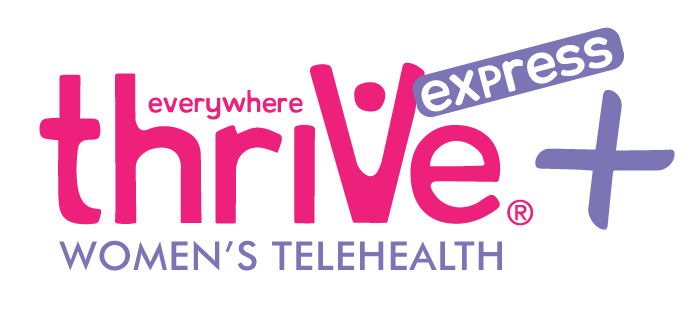Plenty of women have questions when it comes to pregnancy, like how many months is 24 weeks? Why does gestational age matter for my pregnancy choice? How can I find out the viability of my pregnancy?
Well, welcome to Nurse’s Corner! ThriVe+ is a super safe place for your questions. Women’s health is our priority. And that means empowering YOU with the info you need to make your own authentic choice.
Today, let’s chat about gestational age and what it means for pregnancy. It’s totally normal to have questions like “How many months is 24 weeks?” because being pregnant is a totally unique experience. You’re not crazy for having questions. In fact, asking questions helps equip you to make the best choice for you. So let’s get right to it!.
What’s gestational age?
Gestational age is how we measure how far along a pregnancy is.1 It’s counted from the first day of a woman’s last period to now. This means when we say someone is 10 weeks pregnant, it includes two weeks before the baby was even conceived.2 It might sound a bit confusing, but it’s just the way doctors do it.
If you want to know how far along your pregnancy is, you can use one of the many pregnancy tracking apps. They’ll help you figure out how far along you are and how many months is 24 weeks quickly. ThriVe+ offers this service at no-cost, and several other medical services for women. We can confirm your pregnancy and other super important things that we’ll talk more about below.
Pregnancy viability vs. fetal viability:
Okay, let’s talk about viability. Maybe you’ve heard the word before but you’re not sure why it matters. Girl, I got you! Pregnancy viability is when a pregnancy is likely to continue until birth. Fetal viability is when a baby can survive outside the mom’s body.3 This usually happens around 24 weeks, which is about six months into the pregnancy.4 So, how many months is 24 weeks? 6! Through scientific advancement, babies born as early as 22 weeks have survived and are doing well.5 But before 24 weeks, it’s much harder for a baby to live outside the womb.
It’s important for you to take care of yourself. You deserve good health, even if you’re still making your pregnancy decision. Self-care and healthy habits are never a bad idea!
Irregular periods?
We usually start counting gestational age from the first day of the last period. But sometimes, periods can be irregular.6 Everyone’s different. That makes it tricky to get the exact age. That’s where an ultrasound comes in. An early ultrasound helps a medical professional see the baby’s size. It gives a better idea of how far along the pregnancy really is.7 ThriVe+ offers no-cost ultrasounds and pregnancy tests. We are pro-woman, so our services are discreet and we never judge. We’re here to help you..

Why 24 weeks matters
When we talk about how many months is 24 weeks, we’re talking about a big milestone. At this point, a baby has a decent chance of surviving outside the womb with medical help.5 The abortion pill is only FDA approved up to 10 weeks gestational age,8 and shouldn’t be used later in pregnancy.9
That’s one reason why an ultrasound is really important if you think you’re pregnant. An ultrasound can help you know for sure how long you’ve been pregnant so you can understand what options are safe for you to pursue. We care about your health and safety; that’s why we recommend a pre-abortion screening to keep you safe. No matter what, you will always have a choice. You’re in control.
Still have questions? I’ve got you covered. Pregnancy can be a confusing time! Check out some of these commonly asked questions about gestational age. We’ve got your back at ThrIVe+.
Do I need to know the gestational age before I make a decision?
Yes!
Knowing how long you’ve been pregnant is super important, including understanding what options are available to you. Why do questions like “how many months is 24 weeks” matter when it comes to abortion? Different stages of pregnancy have different medical guidelines and options for care. For example, the type of abortion procedure you might consider can depend on how far along the pregnancy is. Your health matters! It’s important to have accurate information about how long you’ve been pregnant so you can make the best decision for your situation.
Why do I need to know gestational age before considering abortion?
Knowing the gestational age is crucial when you’re considering an abortion. The type of abortion that’s available and legal restrictions can vary depending on how far along your pregnancy is. Like we mentioned, the abortion pill is FDA-approved only up to 10 weeks of pregnancy. Beyond that, surgical options might be needed. ThriVe+ offers ultrasounds to confirm your pregnancy’s gestational age — so you can make a safe choice for you.
An ultrasound can also help you know whether or not the pregnancy is healthy and viable. With an ultrasound, a medical professional can see if the fetus is growing the way it should for the gestational age9 — or if the pregnancy is likely to end on its own. This is important information to have if you’re considering abortion. If the pregnancy is already ending on its own, why go through the stress, cost, and symptoms of having an abortion procedure?

What steps should I take to start making my pregnancy decision?
1. Confirm the pregnancy: Take a home pregnancy test and schedule an appointment with a healthcare provider to confirm the pregnancy. ThriVe+ offers no-cost lab-quality pregnancy tests. Come see us to get a fast and accurate result.
2. Get an ultrasound: An early ultrasound can give you important info about the gestational age and viability of the pregnancy. Ultrasounds are pain-free, simple, and (at ThriVe+) no-cost. Your health is worth taking this important step.
3. Gather info: Learn about all your options — abortion, adoption and parenting. Learn the procedures, risks, and what each option entails. We can help you with medically accurate info. That includes all your questions, including “how many months is 24 weeks?” There are no bad questions. We care that you know every option so you can make your own authentic choice. You deserve it.
4. Consult healthcare pros: Talk to doctors, nurses, or women’s advocates who can provide medical information and support. We’ll always provide information without judgment or pressure.
5. Consider your values and circumstances: Think about your personal values, life situation, and what feels right for you. This is super important. It’s your choice, and yours alone. That means you have the power here. Consider a choice that you’ll feel confident about.
6. Seek support: Talk to trusted friends, family, or support groups to help you process your feelings and thoughts. Asking questions like “how many months is 24 weeks” is a great way to get support. Keep asking your questions.
7. Make an informed decision: Use the information and support you’ve gathered to make a decision that aligns with your values and needs. We’ll be here to support you with empathy and genuine care. You shouldn’t have to do this alone. No matter what you decide, you deserve to have back up.
Making the right decision for you
Here at ThriVe+, our goal is to give you all the accurate info you need about pregnancy, including the choices available to you. We want you to feel supported and make the best decision for you, based on the facts and what feels right for you.
Sources:
1 1st trimester pregnancy: What to expect – Mayo Clinic
2 Fetal development: The 1st trimester – Mayo Clinic
3 Definition of Terms – Mayo Clinic Research
4 Premature birth – Symptoms and causes – Mayo Clinic
6 Menstrual cycle: What’s normal, what’s not – Mayo Clinic




